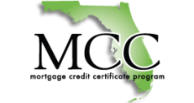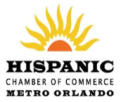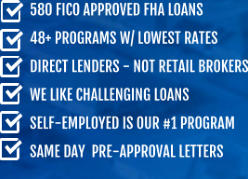




WHAT ARE CONVENTIONAL - CONFORMING AND NON-CONFORMING LOANS?
When you’re evaluating home loan categories, it’s easy to get confused by the
terms “conventional” and “conforming and non-conforming.” As similar as these
three terms may sound, their definitions are worlds apart, so it’s important to
understand the distinctions. We’re here to clear the air.
A conventional loan is a mortgage that adhere to Fannie Mae guidelines. Fannie Mae, or Federal
National Mortgage Association, is a corporation created by the federal government that buys and sells
conventional mortgages and also sets the maximum loan amount and requirements for borrowers.
A conforming loan, on the other hand, describes a certain set of characteristics contained within a
home loan. For example, a conventional loan can be either conforming or non-conforming.
Within the mortgage industry, loans are repackaged and sold on the secondary market to mortgage
investors, the biggest of which include the government-sponsored entities (GSEs), Fannie Mae and
Freddie Mac. When a pool of loans adheres to the standards of Fannie Mae and Freddie Mac, the loans
are considered “conforming.”
Let’s take a closer look at the differences of conforming and non-conforming loans, and how borrowers
can assess which home loan will benefit them most.
What Is a Conforming Loan?
In order for a mortgage loan to be conforming, it must meet the specific criteria that allow Fannie Mae
and Freddie Mac to purchase the loan. The most significant of these criteria is the loan limit, which
refers to the maximum amount of the loan that Fannie Mae or Freddie Mac will purchase. The loan limit
can change from year to year.
For the first time since 2006, the Federal Housing Finance Agency (FHFA) has increased the conforming
loan limit for a single-family, one-unit property—from $417,000 to $424,100. Since Fannie Mae and
Freddie Mac are managed by FHFA, they align with FHFA’s loan limits.
What Are the Benefits of a Conforming Loan?
The primary advantage of a conforming loan is that, for borrowers with excellent credit, they typically
offer lower interest rates, which means lower monthly mortgage payments and less money spent over
the life of the loan.
What Is a Non-Conforming Loan?
Non-conforming loans are loans that simply means that the loan does not meet the underwriting
guidelines set forth by Fannie Mae and Freddie Mac and/or fails to meet traditional bank criteria for
funding.
What Are the Benefits of a Non-Conforming Loan?
While riskier and less common than conforming loans, non-conforming loans allow individuals to
borrow larger amounts than is possible with a conforming loan.
Choosing the Home Loan Option That’s Best for You
As described above, the loan amount, a variety of other factors can dictate which loan type that you
qualify for. To find out more information about the current loan limits and loan programs, contact us
at 407-300-2558 or click the button below to request a quote with rates and terms.









© 2007 - 2023 1st Florida Lending Corp. - All rights reserved I Privacy Policy I Terms of Use I



- MORTGAGE GLOSSARY OF TERMS
- MORTGAGE CALCULATOR
- LOAN PROGRAMS
- USDA LOAN INFORMATION
- NON-QM MORTGAGE
- PRE-APPROVAL DOCUMENT-CHECKLIST
- APPRAISALS
- LEARN ABOUT CREDIT
- REPAIR YOUR CREDIT
- CLOSING COST
- REFINANCING YOUR LOAN
- MORTGAGE CREDIT EVENTS
- PMI-MORTGAGE INSURANCE
- FORECLOSURE INFORMATION
- CONDO PURCHASE WARNINGS
- THE LOAN PRE-APPROVAL PROCESS


- FHA LOANS - NO DOWN PAYMENT
- BANK STATEMENT LOANS - 90% LTV
- JUMBO LOANS - 95% LTV
- 99% LTV CONVENTIONAL LOAN
- PROGRESSIVE REPAYMENT MORTGAGE
- CONTRUCTION LOANS
- INVESTMENT PROPERTY LOANS - 85% LTV
- STATED MORTGAGE FOR PRIMARY -SECOND HOMES
- NO DOC FUNDING - 6 PROGRAMS
- FOREIGN NATIONAL LOANS
- ASSET BASED MORTGAGE LOAN
- FIX AND FLIP BRIDGE LOANS
- COMMERCIAL PROPERTY LOANS
- VOE MORTGAGE LOANS
- ITIN TAX ID LOAN
- USDA LOAN
- VA LOANS 100% LTV














